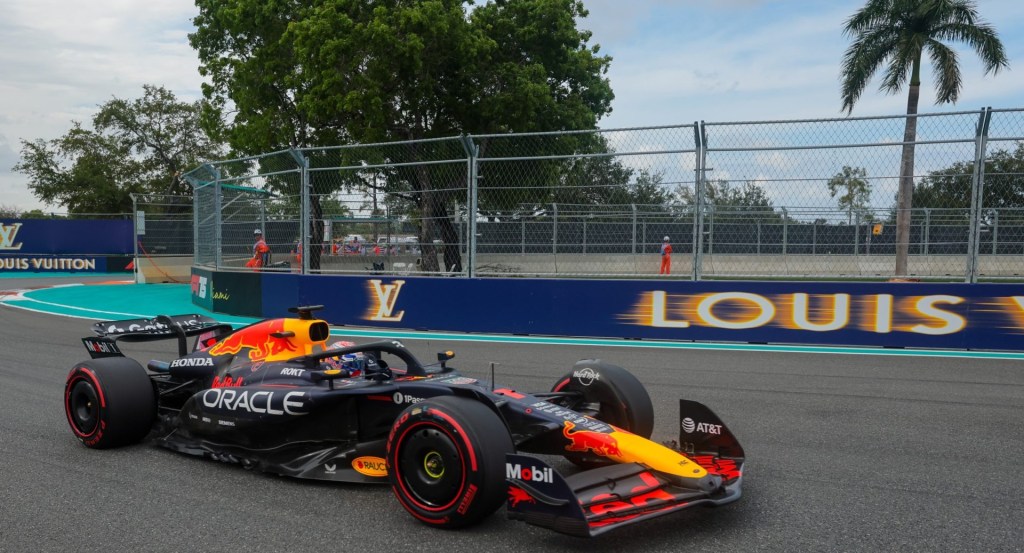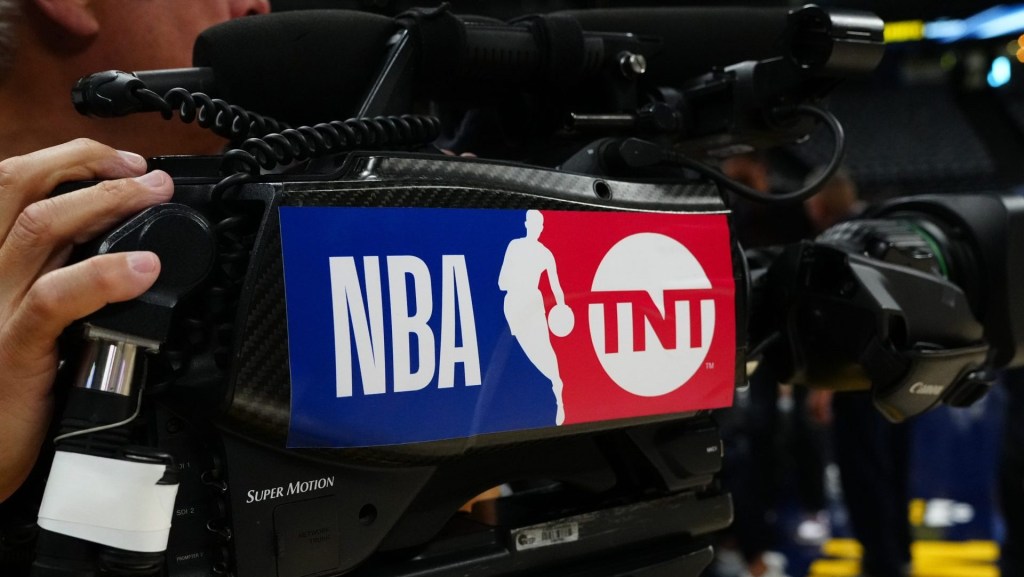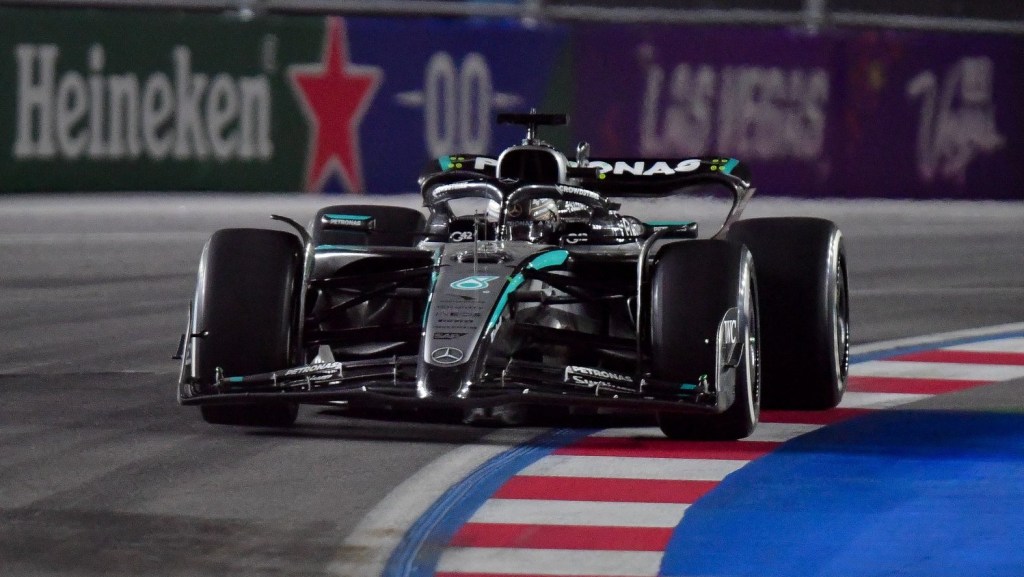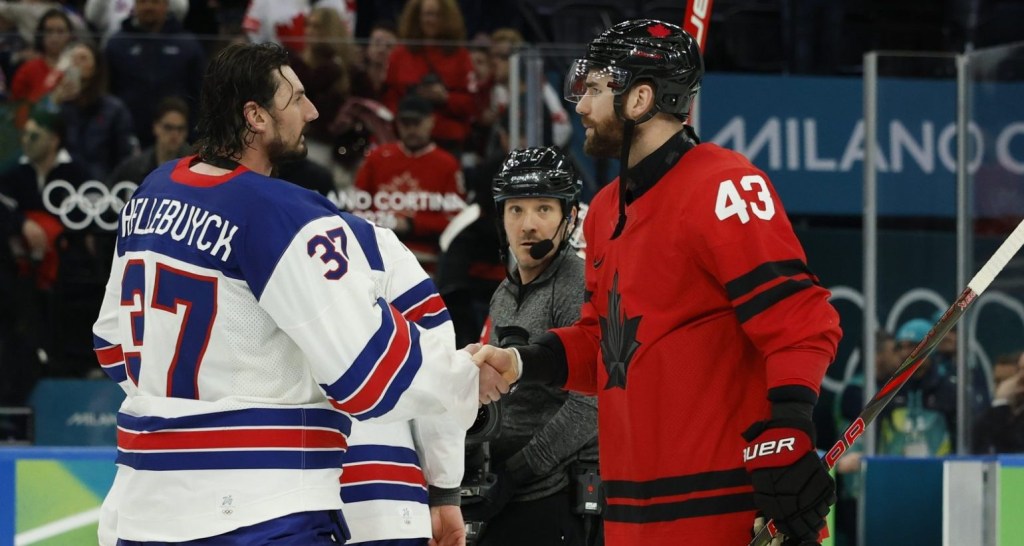Could there be a scenario where ESPN doesn’t have MLB rights? It’s technically possible as a mutual contract opt-out window in their existing rights agreement becomes active next month. The state of negotiations, however, will be a key litmus test on the fast-changing state of sports media.
The Disney-owned network already reconstructed its MLB rights in 2021, signing a new, seven-year agreement running through 2028 that shaved the annual fee from $700 million to about $550 million, and focused the package more on premier events, such as the annual Home Run Derby, the wild-card round of the playoffs, Sunday Night Baseball, and the MLB Little League Classic.
Now, ESPN, according to multiple reports, has had issues with the value it gains from its MLB rights, particularly when contrasted with Apple’s $85 million annual fee for a Friday night package, Warner Bros. Discovery’s agreement worth $470 million annually and that includes a larger set of postseason rights and the mere $10 million per year for Sunday morning games on Roku.
New Thinking
ESPN chairman Jimmy Pitaro, meanwhile, has also shown a desire to acquire some local MLB rights, saying last summer, “We are very interested in continuing to identify partnerships on a team-specific basis.” That sentiment certainly intersects but doesn’t necessarily align fully with MLB commissioner Rob Manfred’s plan to reconstruct baseball’s media landscape to a more centralized model in 2028, when all its national media-rights deals are due to expire.
All of that adds to a level of uncertainty that has scarcely existed since ESPN began broadcasting MLB games in 1990.
“We talk to ESPN all the time,” Manfred said following league meetings this week in Florida. “They’re one of our big partners. … We both have a [contract] out in March of this year. Obviously, ’25 is set. We’ll continue to talk to them, and each side will make a decision whether they want to do anything with that.”
The Athletic reported there is an element of force behind that sentiment, and that MLB is prepared to walk away from the deal if ESPN exercises the opt-out provision. Industry sources confirmed that feeling to Front Office Sports and that a formal opt-out would make it essentially impossible to construct a new deal.
Will it get to that point, though? Beyond the very long-running nature of the MLB-ESPN rights relationship, the network has taken great pride in having rights deals with every major U.S. men’s pro sports league. Pitaro is also a big baseball fan personally. His charge, however, is to run a fiscally responsible operation, an effort showing greater strength this week in Disney’s quarterly earnings, while MLB content certainly would be a notable part of the direct-to-consumer service, currently called “Flagship,” debuting later this year.
The 2024 MLB season generated a five-year viewership high for Sunday Night Baseball, reaching 1.5 million viewers per game, up 6% from 2023, with double-digit percentage gains in several younger demographic groups. Wild-card viewership, meanwhile, rose 25% and set a new record for that round since the 2022 reformation of the league’s playoff format. All those metrics on ESPN are consistent with a resurgent league that enjoyed a broader spike in popularity last year.
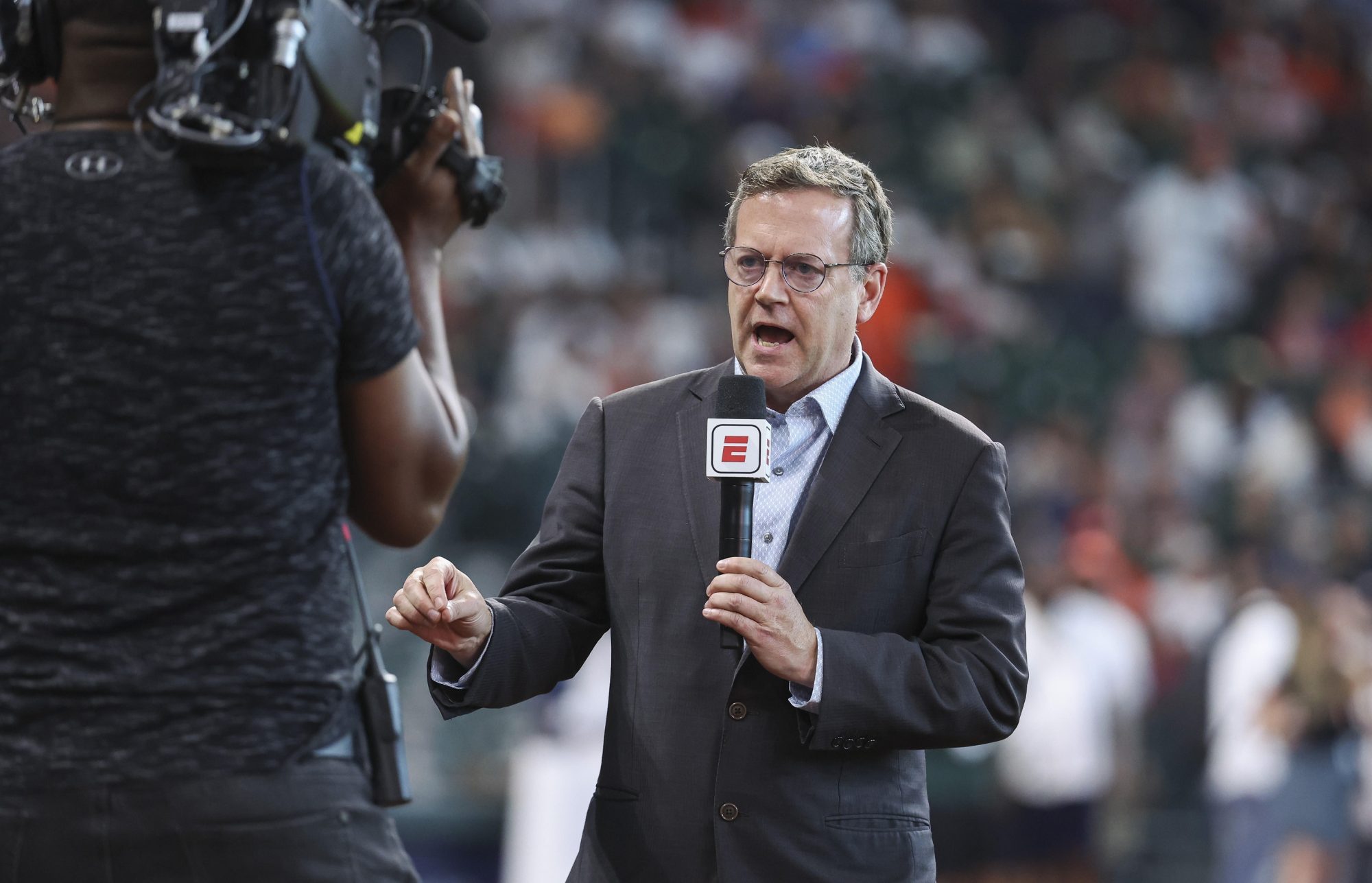
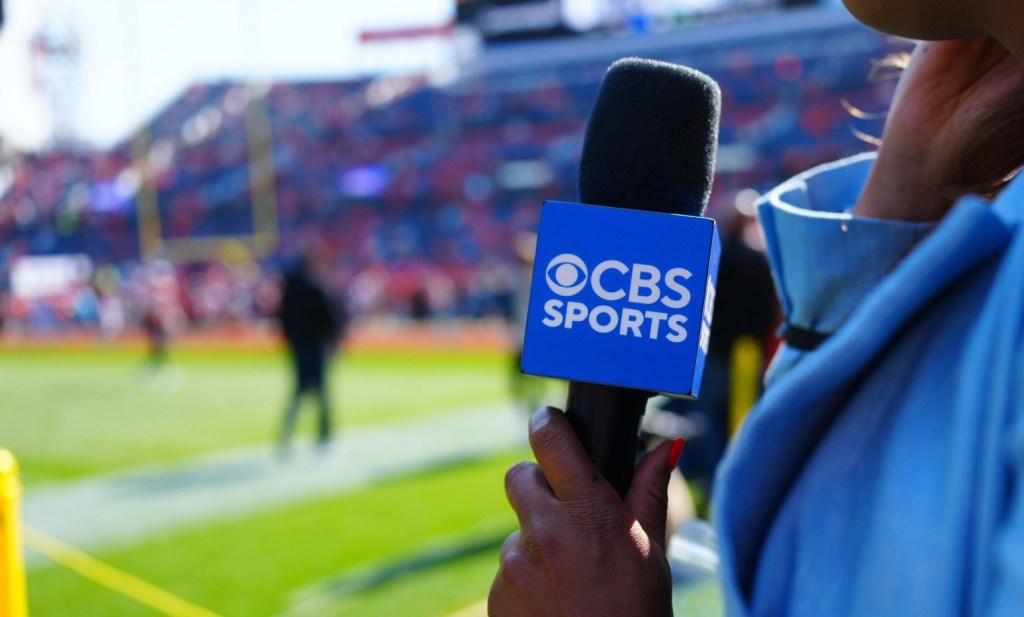

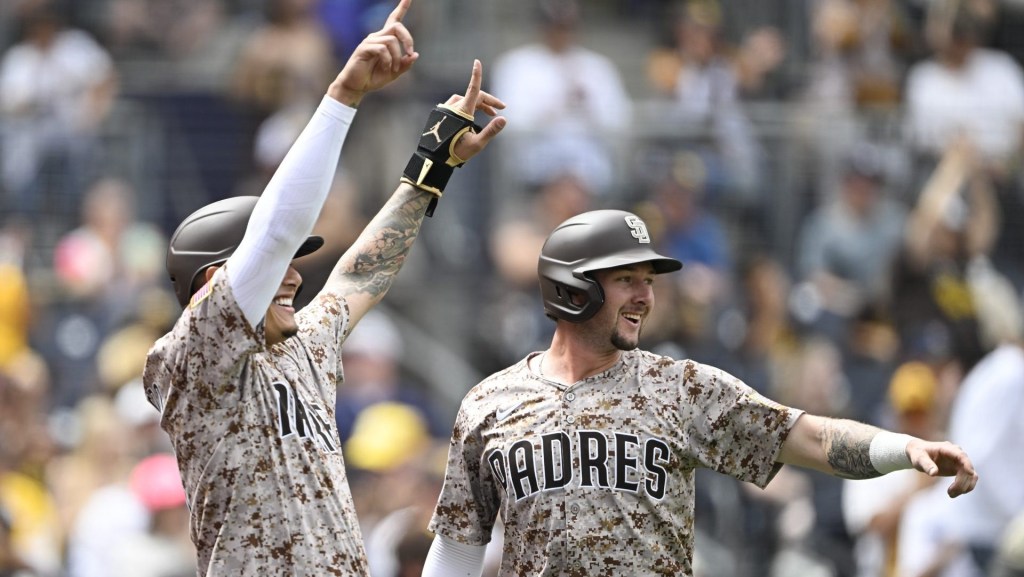
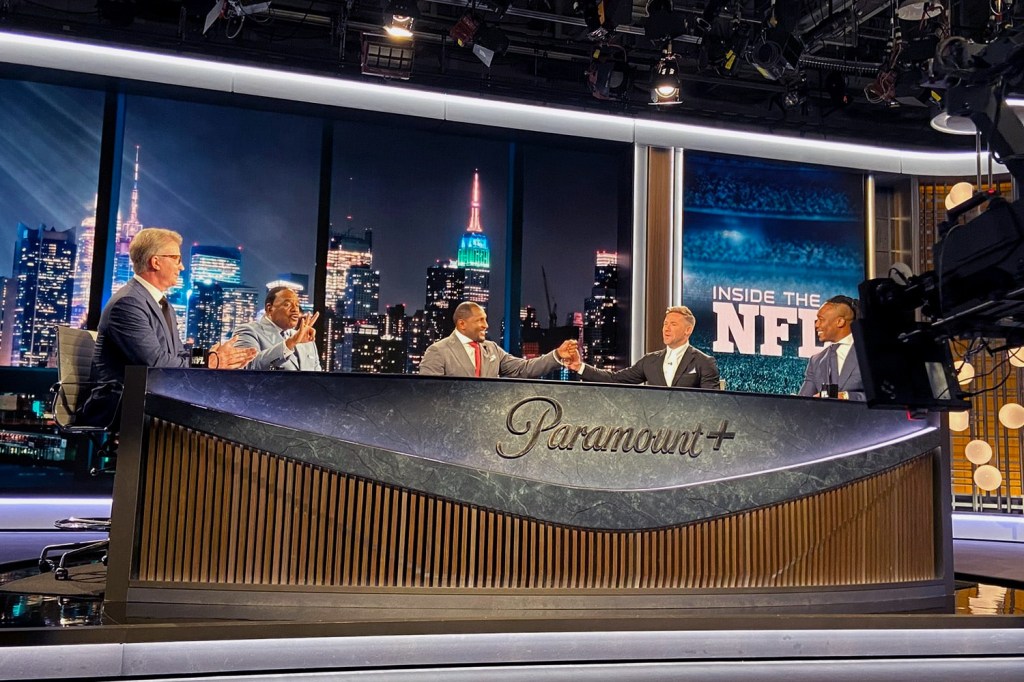
![[Subscription Customers Only] Jun 15, 2025; Seattle, Washington, USA; Botafogo owner John Textor inside the stadium before the match during a group stage match of the 2025 FIFA Club World Cup at Lumen Field.](https://frontofficesports.com/wp-content/uploads/2026/02/USATSI_26465842_168416386_lowres-scaled.jpg?quality=100&w=1024)
![[Subscription Customers Only] Jul 13, 2025; East Rutherford, New Jersey, USA; Chelsea FC midfielder Cole Palmer (10) celebrates winning the final of the 2025 FIFA Club World Cup at MetLife Stadium](https://frontofficesports.com/wp-content/uploads/2026/02/USATSI_26636703-scaled-e1770932227605.jpg?quality=100&w=1024)



